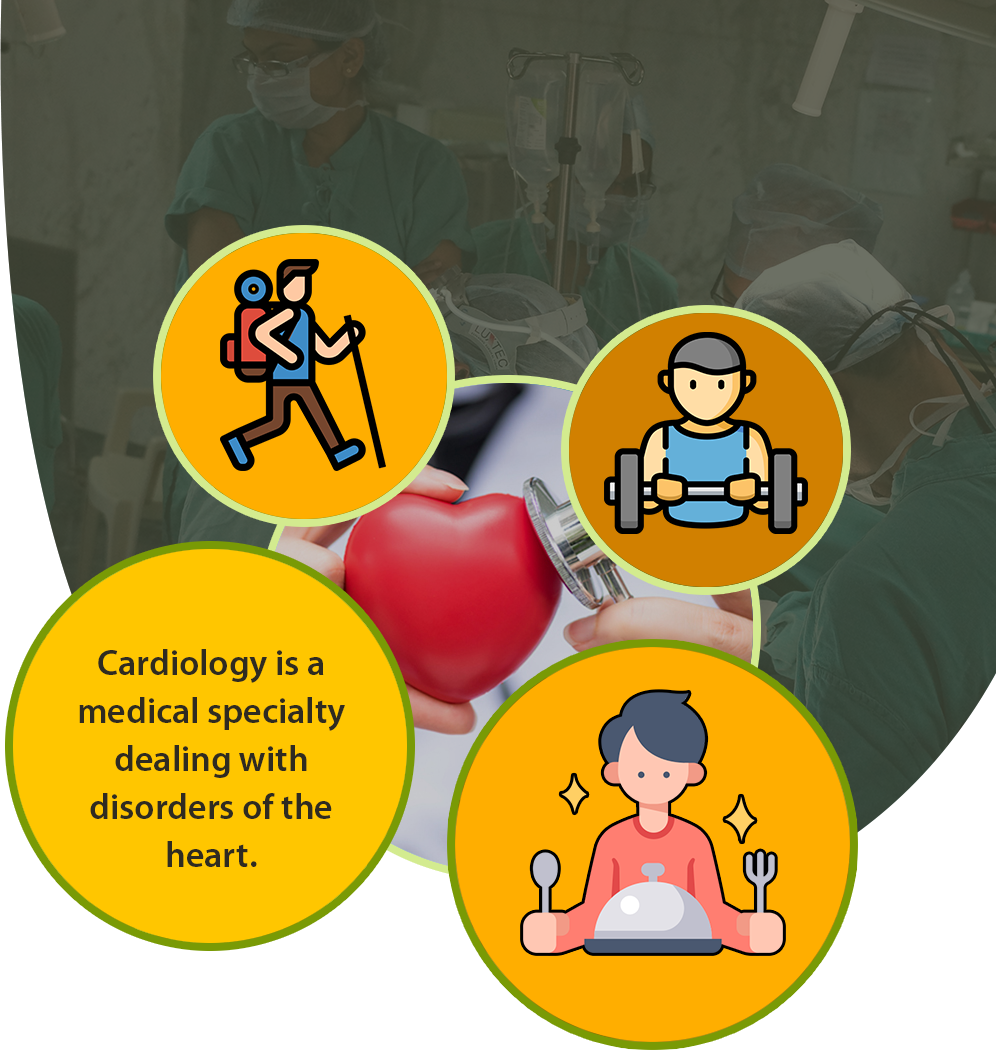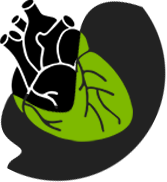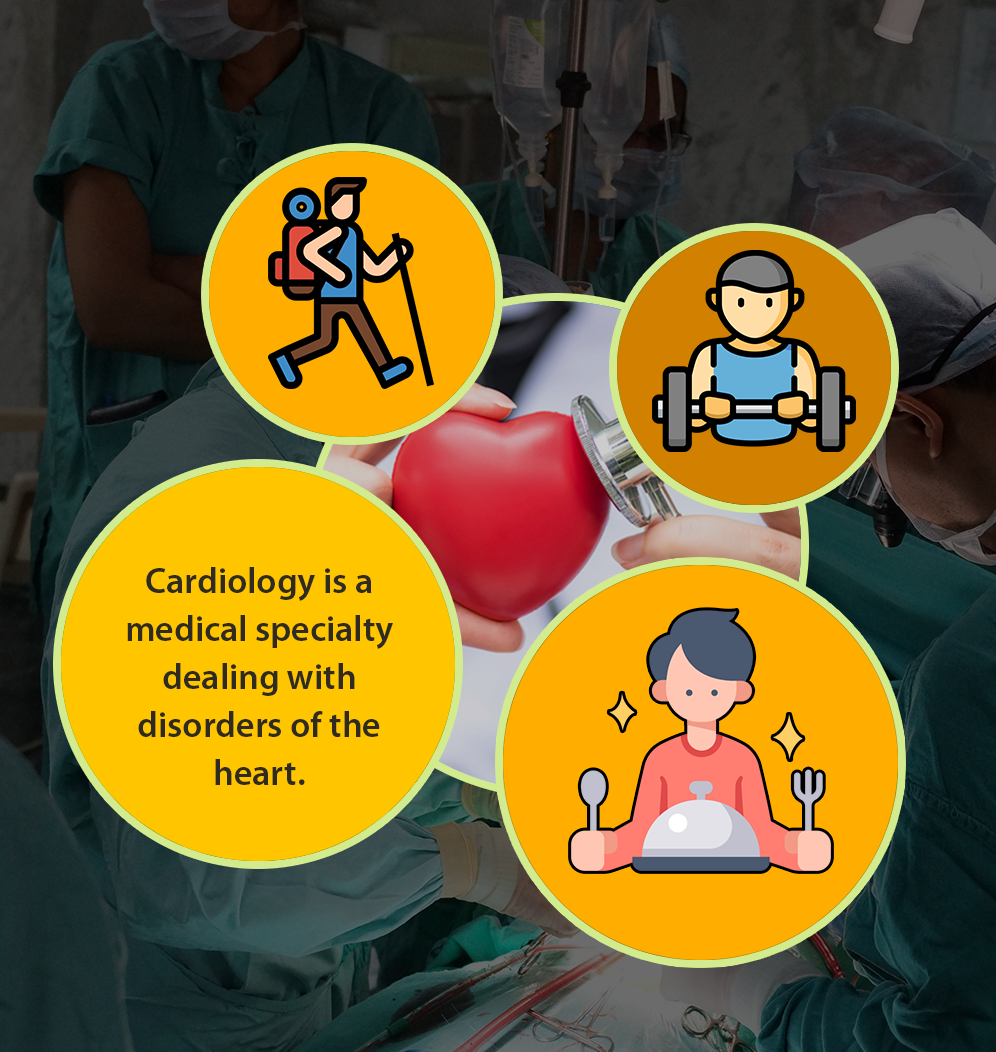

Dr. Swapan Kumar De
Senior Most Interventional Cardiologist at
Apollo Multispeciality Hospital Kolkata.
MD, DM (Cardiology)
Pediatric Cardiologist in Kolkata, India




1. How does the normal heart work?
The normal heart is composed of four chambers. The two upper chambers (called atriums or atria) are reservoirs which collect blood as it flows back to the heart. From the atriums, blood flows into the lower two chambers (called ventricles) which pump blood, with each heart beat, into the main arteries. From the right side of the heart one of these arteries (the pulmonary artery) carries blood to the lungs for re-oxygenation. The left side of the heart pumps blood into the other main artery (the aorta), which takes blood to the rest of the body.
The two ventricles and the two atriums are separated by partitions called 'septums'. The partition between the atriums is called the 'atrial septum' and the one separating the two ventricles is the 'ventricular septum'. Dark red deoxygenated blood (shown blue in diagram) returns to the right atrium from the body through the two main veins called the 'superior vena cava' and 'inferior vena cava'. It is pumped by the right ventricle to the lungs for replenishment with oxygen. The dark blood becomes bright red (shown red in diagram) in the lungs when oxygen is taken up. This red blood returns through two veins from each lung, to the left atrium and is pumped by the left ventricle to the body again. (Illustration)
The heart has its own internal pacemaker which controls its rhythmical beating. It creates an electrical impulse which causes firstly the atriums, and secondly the ventricles, to contract in turn. With each contraction the blood is pumped, then the heart muscle relaxes and the chambers refill with blood, ready for the next contraction.
2. What is high blood pressure ( BP )and how is it treated?
High blood pressure results from the tightening of very small arteries
It can be controlled by low salt diet, regular exercise, stress management, weight control.
Your doctor will prescribe some medications if your BP is not controlled by the above measures.
3. What are the treatment options available for the blocked arteries besides Bypass surgery?
A severely narrowed coronary artery needs treatment to reduce the risk of a heart attack. Various treatment options apart from surgery are:
Angioplasty: Dilatation of a narrowed blood vessel with a help of a balloon.
Stent : It involves insertion of a mesh or spring like metal device inside an artery at a site of narrowing after angioplasty. This will prevent collapsing of the artery.
4. What is a Pacemaker and how does it work?
A pacemaker is a device which helps to regulate your heartbeat and produce electrical impulses that make the heart pump regularly.
5. What are the major risk factors for heart disease?
The major risk factors for heart disease are smoking, high cholesterol levels, high blood pressure, lack of exercise,, obesity, diabetes, old age, male gender, and heredity (family history of heart disease),post menopause incase of women.
6. What is coronary bypass surgery?
Bypass surgery improves the blood flow to the heart with a new route, or "bypass," around a section of clogged or diseased artery.
The surgery involves sewing a section of vein or artery from the leg or chest (called a graft) to bypass a part of the diseased coronary artery.
7. What are common risks of open heart surgery?
All operations carry risk. But with improvements in technology, in surgical procedures and with more surgery being performed at a younger age, the risk of complications is continually being reduced. The possible complications are related to the specific type of surgery being performed and they vary widely depending on the nature of the problem which requires surgery. The presence of other medical conditions such as diabetes, lung disease, or kidney disease can increase the risk of complications in some patients. Anyhow you should discuss the operation and its risks with your doctor prior to the procedure.
8. What are the complications that can occur after a heart surgery?
Possible complications:
Stroke (less than 3%)
Heart attack during or after surgery
Closure of new bypass grafts
Bleeding from the tissues inside the chest
Infection at incision sites, newly placed artificial valves, or urinary bladder. Therefore, we use antibiotics before and after surgery.
Irregularities of the heart beat
Lung or kidney problems, especially if there is history of disease in these areas.
These problems are usually temporary, but may require prolonged ventilator support, or the use of kidney dialysis. We will discuss such situations with patients and their families before starting "extraordinary" treatments,.Your cardiologist and cardiac surgeon will discuss this subject with you prior to surgery.
9. What should I do to prepare for surgery?
Knowing what your hospital experience will be like is one way to reduce the natural anxiety you may be feeling when you're scheduled for surgery.
Talk with your Cardiologists and learn about what options are best for you and your family.
Ask your doctor any questions you may have about your condition and your surgery.
Check with your insurance company about preauthorization requirements and arrange to have a friend or family member transport you to the hospital.
We have a preoperative teaching programme everyday scheduled between 3.30 - 4.30 pm when the details of the surgeries will be explained by our experienced Physician Assistants.
10. What happens before the operation?
Your surgeon will tell you about the Intensive care unit where you will be taken after surgery.
He/She will also tell you what to expect during surgery, give you instructions on coughing and explain how you might feel when you wake up.
Our physiotherapists will also teach you some breathing exercises which will help you to improve your lung function and for a smooth post operative recovery.
You will also be given preoperative medication to help you relax.
Your chest area and your leg area will be prepared.
You may also have a urinary or Foley catheter to relieve your bladder during surgery and for a few hours after surgery.
11. How long will the surgery take?
After you go to the operating room and are asleep, you are prepared for surgery with the insertion of monitoring catheters and a breathing tube. This preparation phase takes one to one and a half hours.
Cardiac surgery takes about five hours, but it may range between three and six hours if the surgery is uneventful. Your surgeon will be able to give you an estimate of how long you'll be in the operating room.
12. How will I feel when I wake up?
When you wake up, you will have a breathing tube in your throat, chest drainage tubes, IV lines in your arm(s) and/or neck as well as a urinary catheter to drain urine.
You will not be able to speak until the breathing tube is removed, which is generally after 12 hours or depending on your response.
ICU nurses are skilled in communicating with patients who have breathing tubes.
Pain medication will be given as needed.
While in the ICU, you may hear unusual sounds such as buzzing, beeping and bubbling. These are normal sounds for this environment, and there's no reason for you to be alarmed.
13. What happens the next day?
Your care team will continue to monitor your heart and check your blood pressure and pulse every two to four hours, as needed.
You will also cough and deep breathe at least every two hours.
Your urinary catheter, chest tubes and IVs may be removed, but you will continue to receive pain medication, as needed.
You will also have a chest X-ray, ECG and lab work.
Your physician may order aspirin for you if you have had bypass surgery or blood thinning medication if you have had valve replacement surgery.
You will transfer via wheelchair to postoperative ward.
14. How long should a pacemaker last?
Pacemaker batteries usually do not stop suddenly. One of the purposes of your follow up care is to monitor the battery status. Your pacemaker will give ample warning that the battery is reaching depletion. At this time your doctor will schedule a replacement procedure.
In general pacemakers last anywhere between 2 to 10 years. Pacemaker longevity depends upon how hard the battery inside the pulse generator has to work. This in turn is affected by how much energy is required to pace your heart and how the system is programmed for your needs.
15. Can I Exercise With A Pacemaker?
Upon consulting your physician, you may be able to enjoy moderate exercise with your pacemaker or ICD, including housework and yard work.
16. Will I Feel The Pacemaker Or ICD?
At first, you may feel the weight of the device in your chest. However, over time, most people become accustomed to the way it feels. The pacemaker generator is very small, about the size of two silver dollars stacked on top of each other, and weighs about an ounce or less, depending on the make and model of the device. If the ICD sends a shock to the heart or "fires," the person will feel this as a jolt or kick in the chest.
17. What is meant by the term 'congenital heart disease'?
The phrase 'congenital heart disease' refers to the various abnormalities of the heart which are present at birth. Other words, such as disorder, defect, condition, or problem, may be used instead of disease.
There are three main types of abnormalities:
There may be a narrowing (called 'stenosis') in parts of the heart, in its valves, or in the blood vessels outside the heart. This narrowing obstructs the flow of blood and puts strain on the heart muscle. In severe cases, the flow of blood past the obstruction may be reduced.
There may be holes in the partitions (septums) between the chambers of the heart. These allow blood to flow from one side of the heart to the other (called 'shunting'). As the blood pressure is higher in the left side, blood flows (shunts) from left to right and results in increased flow to the lungs. The normal communications present at birth may persist between the main blood vessels attached to the heart, e.g. Patent Ductus Arteriosus. This also results in increased blood flow to the lungs..
The main vessels may be attached to the heart at an abnormal location.
About Cardiologists : Cardiologists treat people with diseases or conditions of the heart and people who want to learn the risk factors for heart disease. A primary care doctor or family practice doctor can work with a cardiology specialist to diagnose, treat, and manage heart conditions and help people make heart-healthy lifestyle choices. Patients who are at risk for heart disease or have a history of heart symptoms may see a clinical cardiologist regularly. People with ongoing heart conditions, pacemakers, or frequent heart trouble are likely to see a cardiologist with a subspecialty.